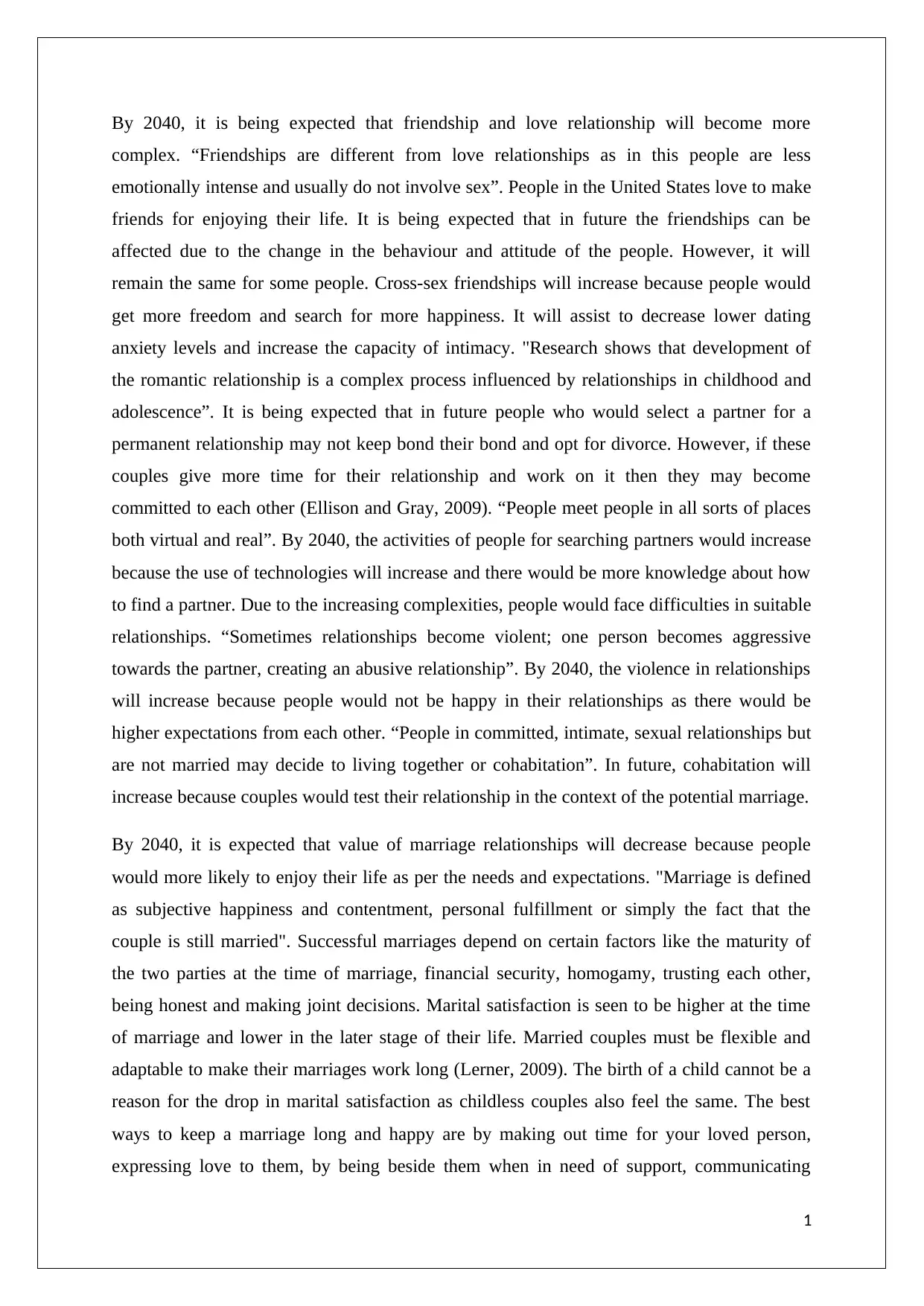Civil Law: Forecasting Changes in Love, Marriage, and Divorce by 2040
VerifiedAdded on 2023/04/08
|4
|670
|231
Essay
AI Summary
This essay examines the anticipated changes in relationships, marriage, and divorce by the year 2040, viewed through the lens of Civil Law. It posits that while friendships may evolve due to changing societal attitudes, the core need for companionship will persist, potentially leading to an increase in cross-sex friendships. The essay suggests a future where commitment in long-term partnerships may be challenged, with potential rises in divorce rates despite couples possibly delaying marriage. It also discusses the potential increase in cohabitation as a trial period before marriage, and a possible decline in the perceived value of marriage itself, influenced by individual desires and technological advancements in partner-seeking. Furthermore, the essay addresses the likelihood of increased relationship violence due to heightened expectations and concludes by emphasizing that while divorce rates might initially rise, a greater emphasis on marital commitment and later marriages could lead to a decrease in divorce rates by 2040.
1 out of 4











![[object Object]](/_next/static/media/star-bottom.7253800d.svg)